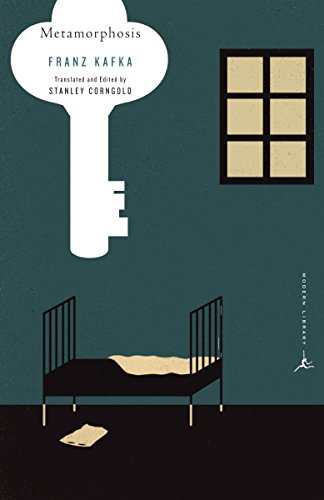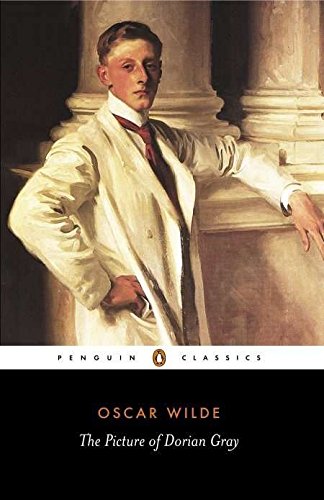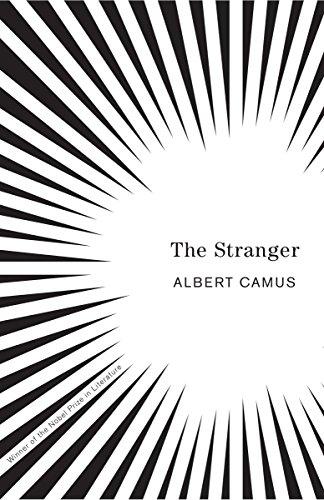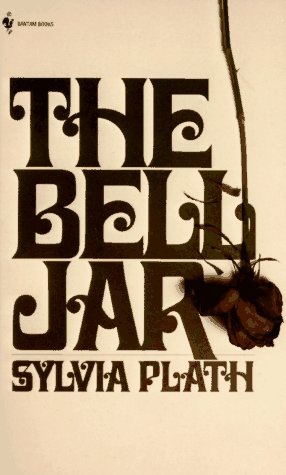Existentialism is defined as the belief that we are all personally responsible for defining meaning within our individual lives, as opposed to gods and governments and teachers. Exploring one’s identity is quite possibly the most vital part of growing up, and this can bring about the question of one’s own purpose. I found these books extremely influential in the sense that they dealt with the absurdities of human life alongside the mundane parts in such a way that felt startlingly confrontational at times. Being exposed to literature where the main characters had to debate their own purpose pushed me to consider my own, and I believe that having that exposure while growing up can be extremely influential
1
The Metamorphosis tackles startlingly realistic themes of alienation, responsibility and personal identity, considering the absurdity of its plotline. Gregor Samsa wakes to find himself transformed into 'vermin' (commonly depicted as a beetle, but left deliberately vague by Kafka) but his first thoughts, rather jarringly, are concerns about his job and workload rather than his new form. As time goes on, he becomes more and more alienated but learns to entertain and find meaning for himself. It is the inanity of this entire situation that gifts the novella its existential nature. Samsa is forced to reconsider his meaning and his identity through changes in taste and coordination, while the limits of his family's empathy are pushed to their boundaries. A clear statement about personal fulfilment and purpose is also made - once Samsa is no longer capable of providing for his family, he begins to feel like a burden, insinuating that our working lives can take room from our personal interests and priorities. The ending is deliberately underwhelming, leaving us unsatisfied with a neither good nor bad situation. This ends The Metamorphosis feeling like a polite invitation to consider personal priorities, a story all so relevant for someone like me, who has always been very attached to the idea of defining herself by work and grades. Being flung into such a scary and unknown situation yet still only concerning myself with work, then heading straight to question my role within my family, felt like a potentially bleak future before reading more into this title.
2
The Picture of Dorian Gray began as a criticism of aestheticism, carried almost entirely by Gray's vanity and image, but quickly spirals into what could be interpreted as more of a horror story. Trapping his soul in a portrait of himself, Gray begins to have the lines between consciousness and painting blurred, forcing him to question his own desires. Oscar Wilde draws attention to the deepest of human urges, exploring free will in a dangerous light which makes a fascinating contrast to the other books I have compiled, which tend to view change and decision as neutral options.
3
The Stranger acts to ridicule structure. Like in many of his writings, Camus uses The Stranger to display the lack of meaning and order displayed by human lives, which we attempt to rationalise with self-imposed order. The classic existentialist absurdity of The Stranger is not presented through the actual plot itself, rather through the actions exhibited by Mersault, which were based on senselessness and impulsivity. His decisions are hurriedly brushed aside with logic by onlookers, but Mersault must fight this notion to reach true happiness. The Stranger bares the ubiquitous message that 'someday we are all going to die', and that the universe is indifferent to us all. Although the book carries some heavy topics, having this same message reinstated felt very reassuring, especially reading it at such an insecure point, at the age of sixteen.
4
The Bell Jar is not advertised as an autobiograhy, but largely frames Plath's experience with depression and suicidal idealisations. While this case is extreme, the anxiety and overthinking that Plath captures through such succinct emotional descriptions felt extremely relatable. Through her character Esther, Plath details the pressures of womanhood and exploring acceptable social identity. As her external environment begins to lead to a bout of depression, which leads Esther to begin questioning her own moral values, and subsequently her own self worth. Having the inspiration of this book taken from real-life experience added a layer of realism that doesn't present itself often in such books. The Bell Jar was startlingly raw and confrontational at times and went to show just how easy goals are to pursue/change.
5
The Death of Ivan Ilyich is one of Tolstoy's shorter works, which make it a good introduction to his writing for me. Rather than a mid-life crisis, the short story begins with the death of a man, and is then formatted as a flashback. Ilyich was taken ill, and following this was a significant drop in his quality of life, which continued until a foreboding dream, after which Ivan starts to debate whether he has lived his life right. This story, I believe, is important to read while adolescent, prior to any long-term commitments, but old enough to have faced the feeling of regret enough times to understand it. Following suit with The Metamorphosis, the main character's main plight in real-time was chasing responsibility and becoming trapped in a life of work. Again, the story serves as a wake-up call, suggesting that our purpose should not become lost among endless working commitments, which will go on to overshadow privileges like comfortable family life.

1
The Metamorphosis tackles startlingly realistic themes of alienation, responsibility and personal identity, considering the absurdity of its plotline. Gregor Samsa wakes to find himself transformed into 'vermin' (commonly depicted as a beetle, but left deliberately vague by Kafka) but his first thoughts, rather jarringly, are concerns about his job and workload rather than his new form. As time goes on, he becomes more and more alienated but learns to entertain and find meaning for himself. It is the inanity of this entire situation that gifts the novella its existential nature. Samsa is forced to reconsider his meaning and his identity through changes in taste and coordination, while the limits of his family's empathy are pushed to their boundaries. A clear statement about personal fulfilment and purpose is also made - once Samsa is no longer capable of providing for his family, he begins to feel like a burden, insinuating that our working lives can take room from our personal interests and priorities. The ending is deliberately underwhelming, leaving us unsatisfied with a neither good nor bad situation. This ends The Metamorphosis feeling like a polite invitation to consider personal priorities, a story all so relevant for someone like me, who has always been very attached to the idea of defining herself by work and grades. Being flung into such a scary and unknown situation yet still only concerning myself with work, then heading straight to question my role within my family, felt like a potentially bleak future before reading more into this title.

2
The Picture of Dorian Gray began as a criticism of aestheticism, carried almost entirely by Gray's vanity and image, but quickly spirals into what could be interpreted as more of a horror story. Trapping his soul in a portrait of himself, Gray begins to have the lines between consciousness and painting blurred, forcing him to question his own desires. Oscar Wilde draws attention to the deepest of human urges, exploring free will in a dangerous light which makes a fascinating contrast to the other books I have compiled, which tend to view change and decision as neutral options.

3
The Stranger acts to ridicule structure. Like in many of his writings, Camus uses The Stranger to display the lack of meaning and order displayed by human lives, which we attempt to rationalise with self-imposed order. The classic existentialist absurdity of The Stranger is not presented through the actual plot itself, rather through the actions exhibited by Mersault, which were based on senselessness and impulsivity. His decisions are hurriedly brushed aside with logic by onlookers, but Mersault must fight this notion to reach true happiness. The Stranger bares the ubiquitous message that 'someday we are all going to die', and that the universe is indifferent to us all. Although the book carries some heavy topics, having this same message reinstated felt very reassuring, especially reading it at such an insecure point, at the age of sixteen.

4
The Bell Jar is not advertised as an autobiograhy, but largely frames Plath's experience with depression and suicidal idealisations. While this case is extreme, the anxiety and overthinking that Plath captures through such succinct emotional descriptions felt extremely relatable. Through her character Esther, Plath details the pressures of womanhood and exploring acceptable social identity. As her external environment begins to lead to a bout of depression, which leads Esther to begin questioning her own moral values, and subsequently her own self worth. Having the inspiration of this book taken from real-life experience added a layer of realism that doesn't present itself often in such books. The Bell Jar was startlingly raw and confrontational at times and went to show just how easy goals are to pursue/change.

5
The Death of Ivan Ilyich is one of Tolstoy's shorter works, which make it a good introduction to his writing for me. Rather than a mid-life crisis, the short story begins with the death of a man, and is then formatted as a flashback. Ilyich was taken ill, and following this was a significant drop in his quality of life, which continued until a foreboding dream, after which Ivan starts to debate whether he has lived his life right. This story, I believe, is important to read while adolescent, prior to any long-term commitments, but old enough to have faced the feeling of regret enough times to understand it. Following suit with The Metamorphosis, the main character's main plight in real-time was chasing responsibility and becoming trapped in a life of work. Again, the story serves as a wake-up call, suggesting that our purpose should not become lost among endless working commitments, which will go on to overshadow privileges like comfortable family life.
© Five Books 2026